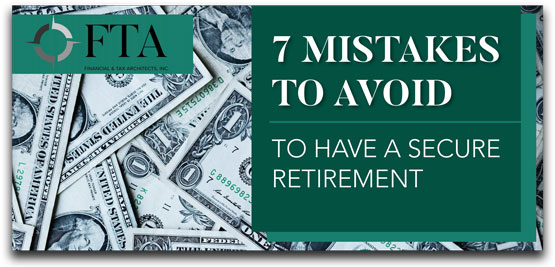Retirement Trends – How Retirees Are Spending Their Retirement Funds
5 MIN. READ
Seventy is the new fifty. Baby Boomers are the most active generation of retirees ever, and they’re not retiring in the same way as previous generations. Rather, they are creating a new retirement trend. Let’s take a closer look at how they’re spending their retirement funds.
Maintaining their same lifestyle is the goal
Maintaining a comfortable lifestyle is a priority. Many Baby Boomers saved enough money throughout their working years combined with Social Security benefits to cover their daily expenses.
In fact, according to the 20th Annual Transamerica Retirement Survey, over 75% of Baby Boomers feel that they can continue to live comfortably in retirement.
Regardless of this majority opinion though, the pandemic did affect the lifestyles and confidence of retirees. While most believe the pandemic did not change their confidence level, others (15%) thought the pandemic made retirement harder. Nonetheless, with ample savings and perhaps a few of the other retirement trends below, many retirees can continue living their normal lives. At [Company Name], we can help you prepare for retirement with a plan that will prioritize savings.
Semi-retirement is trending
Semi-retirement is when you retire from full-time employment but continue to work occasionally or part-time. The U.S. Bureau of Labor Statistics reported that by 2024, it is estimated that 13 million Americans above the age of 65 will be part of the workforce. And in a survey by The Pew Charitable Trust, 62% of respondents ages 52-64 said they probably or definitely will work after 65.
Retirees could either work part-time with their current employer or find a new job to try out. This can also be a good time to turn a hobby into a small business.
Even though semi-retirement brings in less income, it’s trending among retirees for the following benefits:
- A source of extra income to maintain their lifestyle.
- As a source of additional income to cover daily expenses.
- As a way to remain busy and active.
Paying debt is a priority
Baby Boomers are carrying more personal debt today than the previous generation 25-30 years ago. Most have mortgage debt, credit card debt, and student loan debt. In fact, The Congressional Research Service says that in 2016, over 60% of adults 65 and older were in more debt than their predecessors in 1989.
Having a large amount of debt while in retirement can add stress to your finances. It can also affect the way you maintain your lifestyle and limit some of the things you would like to do. Thus, paying off debt is one of the bigger retirement trends among most Boomers. A survey by AARP revealed that over 30% of those aged 65 and over prioritize paying off large debts, and about 21% preferred to save money.
Increasing healthcare expenses are a concern
Healthcare costs are rising. According to the American Medical Association (AMA), healthcare costs have increased by over 4% since 2019. Increasing healthcare expenses, such as doctor’s visits, prescription medication, and nursing care, are changing how retirees are spending money. In fact, hospital care expenses increased by about 31%, as reported by the AMA.
The increasing cost of healthcare is another reason why retirees might consider working after retirement. If you are semi-retired, you can still be covered under a company’s insurance plan if you work a certain number of hours. The International Foundation of Employee Benefit Plans explains that the Affordable Care Act makes it possible for employees who work at least 30 hours per week to be eligible for healthcare insurance.
When it comes to long-term care, a June 2020 Survey on Transamerica Center for Retirement Studies shows that about 41% of retirees feel they would have to rely on family and friends for their long-term care plans. Thus, many Boomers are prioritizing their spending on healthcare to ensure they can afford the help they need.
Upgrading to bigger homes is an unexpected trend
Traditionally, retiring adults like to downsize, but purchasing bigger homes is one of the more surprising retirement trends. In an April 2021 Del Webb survey, about 22% of 50- to 60-year-olds revealed that they are actually looking into upsizing to larger homes.
Some reasons why many retirees are upgrading to bigger homes range from:
- Needing a larger space to accommodate family members.
- Historically low mortgage loan interest rates.
- Larger savings funds before retirement.
Consumer spending is up
Normally, Baby Boomers downsize and tend not to spend on things they don’t need. Traditionally, they are more frugal. But trends are now showing that they are actually big spenders. Visa reported that about 40% of consumer spending is made up of people between the ages of 60 and 69.
Retirees are now shopping online, likely due to the pandemic’s stay-at-home orders. In fact, their spending increased 49% in 2020, compared to 2019. Boomers are mostly spending on items like groceries, healthcare products, wine, and books.
Retirement trends and proper planning
As the Baby Boomer generation continues to retire, trends keep forming. These retirees are prioritizing things like paying off debt and saving for healthcare costs. But they are also focusing on maintaining their lifestyle by spending their money and upgrading to spacious homes.
However, you choose to spend your retirement funds, it is important to have a plan in place. Financial & Tax Architects is here to help with your financial needs, so you can be prepared for retirement! Contact us today to learn more about how we can help you plan for success.






